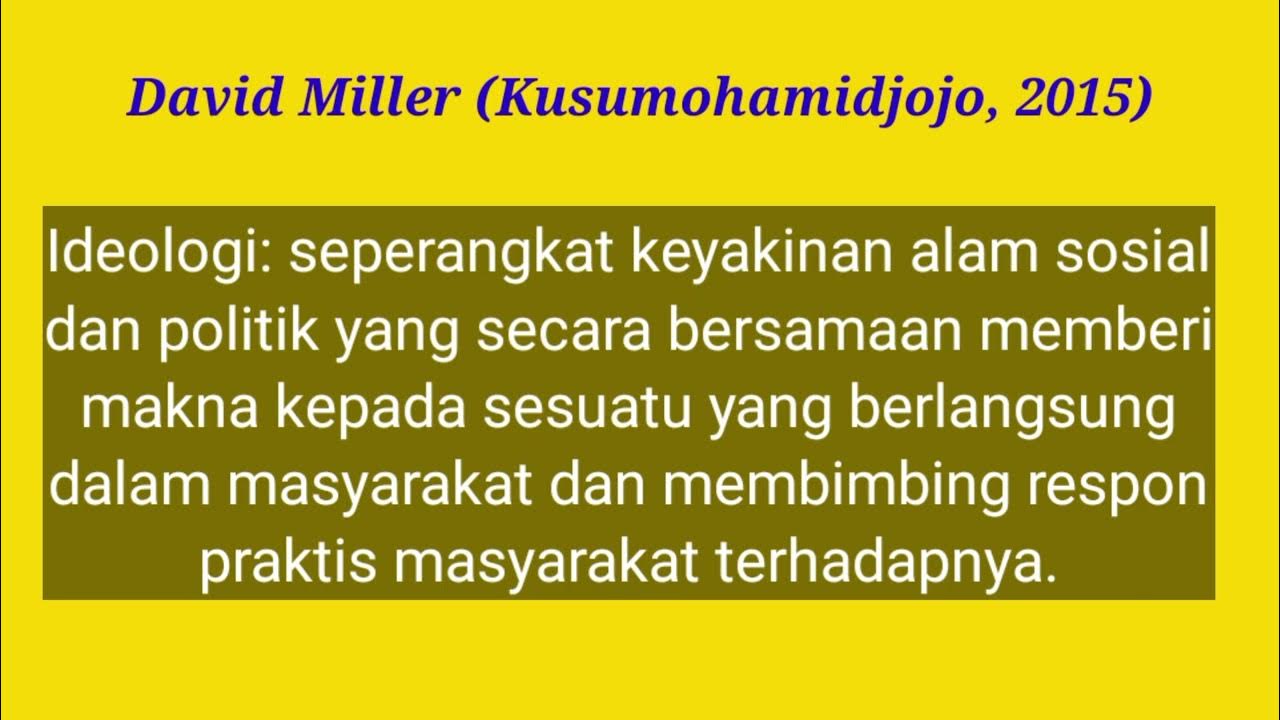What is Religion?
Summary
TLDRThis video explores the concept of religion, delving into its etymology and key characteristics. It explains that the word 'religion' comes from Latin, meaning 'to reconnect,' suggesting a link between the human and sacred worlds. The video outlines eight core elements of religion, including belief systems, community, rituals, ethics, myths, emotional experiences, material expressions, and sacredness. These elements collectively shape religious practices and beliefs across various cultures, providing a comprehensive understanding of what constitutes a religion beyond just worship, offering insight into its diverse forms and expressions.
Takeaways
- 😀 The term 'religion' comes from the Latin words 're' (again) and 'ligare' (to join), meaning 'to reconnect' or 'join again'.
- 😀 Religion is often defined as a system of beliefs involving worship, rituals, prayer, and moral codes, but this definition may not apply universally across all cultures.
- 😀 The term 'spiritual path' is suggested as a more inclusive designation for non-Western religious systems.
- 😀 A belief system is a core element of religion, representing a worldview or systematic interpretation of the universe and the human role within it.
- 😀 Religion inherently involves community, where a group of people share the same beliefs and practices.
- 😀 Rituals are essential to religion, as they enact and bring to life the beliefs through ceremonial acts like prayer or symbolic gestures.
- 😀 Ethics in religion involves rules of behavior that govern the actions of believers, often considered as divinely revealed or socially generated.
- 😀 Myths are central to religions and explain foundational stories or events, such as creation myths or the life of key religious figures.
- 😀 Emotional experiences like devotion, guilt, ecstasy, and inner peace are common in religious practices and are often linked to a connection with the divine.
- 😀 Material expressions, such as statues, paintings, incense, and clothing, symbolize the sacred and are integral to religious practices.
- 😀 Sacredness is a fundamental concept in religion, emphasizing the distinction between the sacred and the profane, as articulated by sociologist Emile Durkheim.
Q & A
What is the etymology of the word 'religion'?
-The word 'religion' comes from the Latin words 're' meaning 'again' and 'ligare' meaning 'to join or connect.' Therefore, 'religion' literally means 'to join again' or 'to reconnect.'
How does Michael Molloy define the term 'religion'?
-According to Michael Molloy, the term 'religion' suggests the joining of the human world to the sacred world, indicating a connection between humanity and a higher spiritual realm.
Why is it considered inappropriate to apply the term 'religion' across cultures?
-It is considered inappropriate because the term 'religion' was popularized in the Western world, and using it to describe other belief systems may not accurately represent their complexities. Michael Molloy suggests that the term 'spiritual path' may be a more appropriate designation.
What are the key elements of religion discussed in the video?
-The key elements of religion discussed are belief system, community, ritual, ethics, myths, emotional experience, material expression, and sacredness.
What does the term 'belief system' refer to in the context of religion?
-A belief system refers to a comprehensive and systematic interpretation of the world or universe, outlining the human person's place and role within it. It is a worldview shared by a group of people.
Why is community an important element of religion?
-A religion involves a group of people who share the same belief system and practice its ideals. A religion cannot be considered as such if it lacks a community of believers who follow its teachings.
What role do rituals play in religion?
-Rituals are ceremonies or actions that enact beliefs, making them tangible and real. They are essential to many religious practices, such as prayer or specific acts of submission, which reinforce the connection between the worshipper and the divine.
How does ethics relate to religion?
-Ethics in religion refers to the rules of human behavior that govern the actions of the community of believers. These ethical guidelines are often seen as having been revealed from a supernatural realm or generated socially.
What is the role of myths in religion?
-Myths in religion are narratives or stories that convey the origins or key events in a religion's tradition. These myths are not merely fictional; they aim to project a reality or truth, such as the creation story in Genesis or the resurrection of Jesus.
Why is sacredness considered a central aspect of religion?
-Sacredness is a core element of religion because it pertains to the deepest level of reality, often seen as the divine or mysterious origin of everything. Religious ceremonies and practices often differentiate the sacred from the profane, emphasizing its importance.
Outlines

Esta sección está disponible solo para usuarios con suscripción. Por favor, mejora tu plan para acceder a esta parte.
Mejorar ahoraMindmap

Esta sección está disponible solo para usuarios con suscripción. Por favor, mejora tu plan para acceder a esta parte.
Mejorar ahoraKeywords

Esta sección está disponible solo para usuarios con suscripción. Por favor, mejora tu plan para acceder a esta parte.
Mejorar ahoraHighlights

Esta sección está disponible solo para usuarios con suscripción. Por favor, mejora tu plan para acceder a esta parte.
Mejorar ahoraTranscripts

Esta sección está disponible solo para usuarios con suscripción. Por favor, mejora tu plan para acceder a esta parte.
Mejorar ahoraVer Más Videos Relacionados

KONSEP BUDAYA| PENGERTIAN BUDAYA DAN SENI

ILMU DAKWAH

Filsafat Hukum dan Etika Profesi 01 | Pengertian Filsafat (Bagian 1) #tutorial #belajar #hukum

Last Leaf in English | Stories for Teenagers | @EnglishFairyTales

PARTIKEL PEMUSNAH MATERI .. DICARI TAPI BIKIN NGERI!! | Sains Angels & Demons

Bab 1. Pancasila, Sub. A. Makna dan Hakikat Ideologi..(Kls XI/1)
5.0 / 5 (0 votes)
